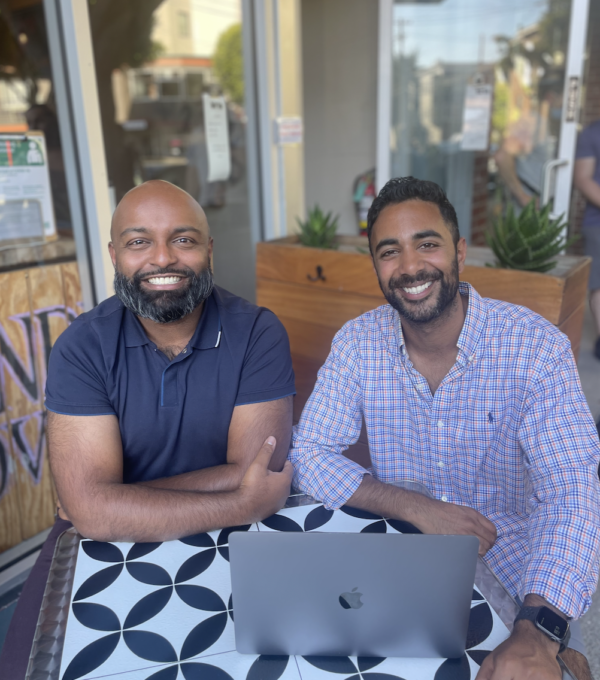

Healthcare startup Novellia’s platform seeks to digitally bring in all chapters of a patient’s health journey to allow clinicians and researchers to finally see the full story. In response to emailed questions, CEO and Co-founder Shashi Shankar explained how he and Dr. Abe Abraham, co-founder and chief medical officer, are working to reduce drug development timeframes.
Why did you start this company?
My co-founder Dr. Abe Abraham and I founded Novellia to speed up clinical research, help doctors diagnose and treat patients more effectively, and make healthcare more equitable. At Novellia, we’re creating the world’s first platform to digitally capture a person’s complete health data. We call it “digitomics”, which is basically the digital complement to “multiomics” platforms.
We started the company on the anniversary of my Tata’s (grandfather’s) passing. He was diagnosed with late-stage gastroesophageal cancer. Doctors didn’t have enough data to diagnose him early enough, or to treat him with true precision care. His health history held the answers, but the data were unfortunately fragmented and stuck in siloes.

Shashi Shankar (right) with Abe Abraham
Abe and I are both ex-Genentechers with complementary skill sets. I helped launch digital health globally for Roche and spent my career heads down in health tech, really understanding where the technology and related policies were headed. Abe spent his career as a drug developer, designing trials, working with real world data, and developing medical strategy for drug launches.
It was over drinks to commemorate my grandfather, when we started catching up on trends we were hearing about in digital health. I told Abe about this incredible new API technology I came across. Basically, this technology allowed patients to get near-instant access to multiple types of health data: EHR, insurance claims, wearables. The current platforms didn’t work super well, and there were still all sorts of access issues to work out, but I thought it was promising and could be improved.
Abe grabbed a napkin and started sketching out all sorts of use cases across pharma R&D and medical affairs. We knew between the two of us, we had the right mix of skills (digital health and drug development) to make this technology better, and we’d already spent the better part of a decade working together.
What need are you seeking to address in healthcare?
There’s no reason it should still take close to 12 years and cost over $2 billion to get life-saving medicines to patients. These statistics have started to improve, but not by much. Synthetic clinical trials are promising, but success rates are still far too low.
There’s a personal cost to this. In my case, I knew from my experience working at Genentech that a new drug was about to come to market which could potentially save my Tata. The problem was there wasn’t enough data to get it approved at the time. Researchers were still forced to comb through low-quality data, like scanned doctor’s notes and spreadsheets, even though much richer datasets were out there. By the time the FDA finally approved the drug, it was too late – my grandfather had already passed away.
The core underlying problem we’re trying to fix with Novellia is that doctors and researchers only get to see a small slice of a patient’s story – for example, their insurance data for just one year, or their medical data from just one doctor for only six months. They have to make huge, consequential decisions based on this tiny sliver of information. It’s not just dangerous, it’s unnecessary.
If we’re able to provide extraordinarily rich, linked data, everything changes. Drugs get to market faster. Healthcare becomes more affordable and equitable. Digitomics, we believe, is the answer.
What is Digitomics? How does it work?
Our digitomics platform will be the world’s first platform to digitally capture a person’s complete health data, the digital complement to “multiomics” platforms. Multiomics is an approach in healthcare where you essentially pull in multiple different “omics”, or types of biologic data. It aims to help researchers understand how those omics interact with each other to uncover hidden information and patterns.
So instead of just genomics or proteomics data, Novellia’s platform will digitally bring in all chapters of a patient’s health journey to allow clinicians and researchers to finally see the full story. Clinicians and researchers can finally see a full, holistic picture of their patients over that patient’s entire healthcare journey, regardless of what doctors, insurers, or wearable products that patient has interacted with.
By providing complete health stories, digitomics can help quickly identify key insights to drive more efficient research and care.
Is this your first healthcare startup? What’s your background in healthcare?
While this is our first startup, we have the experience and skillset to build something never seen before. I started my career as a consultant and spent a few years working on PPACA health policy in DC before joining Genentech. At Genentech, I worked on partnerships with hospitals, launched new drugs, and started Roche’s global digital health program in Switzerland. I earned my MPH MBA from Dartmouth and Johns Hopkins, respectively.
Abe’s also a Johns Hopkins alumnus. After medical school, he spent time at the University of Chicago and Northwestern University focused on sleep medicine, pulmonology, and endocrinology. He went on to get his MBA before joining Genentech. After rising up the ranks in medical affairs, he joined AllAdapt as the global head of drug development.
Elliot, our technical co-founder, is a seasoned startup engineer! He began his startup career as an early engineer at Zocdoc where he worked on the provider experience, sponsored results and sales engineering teams as a senior full-stack engineer. After Zocdoc, Elliot joined Wonder as the first U.S.-based engineer and helped build an engineering organization rising to head of engineering. Most recently, he was senior director of engineering for Thirty Madison responsible for the e-commerce brands and patient experience.
What is your company’s business model?
First and foremost, we start by putting the patient at the center of everything we do.
This means we support total transparency on how data is used. Equally important, we believe in working with patients to determine ways in which they can benefit from the valuable data that they share.
Right now, as you’re reading this, a data company you’ve probably never heard of just sold your health data for millions of dollars. Believe us: we’ve been on the other side, and we’ve seen the contracts. Millions of dollars per dataset.
Historically, patients haven’t been asked to provide consent to share this private data, and they’ve rarely seen direct benefit from doing so. Many times, these patients are single parents, or they’re unable to work, or they’re dealing with any number of life challenges.
We don’t knock researchers for buying the datasets: they need the data, or else life-saving drugs won’t get to market. But we think health data companies ought to know better.
When we thought about how tough it is for patients to get access to drugs, to pay for medical equipment–to even pay for basic things like education, food, and rent, we realized it was critical to start a company that finally put patients first.
Novellia links every piece of a patient’s multidimensional health story to create uniquely rich, longitudinal data packages that we know will be valuable for biotech and the broader life sciences. With patients at the center of all we do, we aim to transparently share how a patient’s data is used and explore the best way to deliver value back to patients. Human beings hold treasure troves of life-saving data; we believe they should be recognized and celebrated for it.
Who is your customer?
Clinicians and leading medical researchers at biotech companies. The folks that are on the front lines- sleeves rolled up and working hard to keep our loved ones alive. Feel free to reach out to our team regarding partnership opportunities.
How do you generate revenue?
Novellia helps these researchers go from just being able to see a patient’s siloed medical data at one health system, for just a year or two, to being able to see complete health data–medical, insurance, etc.–across providers and insurers over time.
Ultimately, our goal is to sign enterprise contracts–where the data shared with the R&D department, for example, can be utilized compliantly by the right teams in commercial and market Access. Workflow automation, compliance management, without any limit to the number of patients or volume of data utilized.
Do you have clinical validation for your product?
One of our main goals is to publish the results from some of our first studies to demonstrate the groundbreaking potential of digitomics. We firmly believe we’re not far from a future where the FDA goes, “wow–that digitomics data needs to be used in every single research program. It’s just that precise and informative.” We see a day where digitomics is a required complement to traditional clinical trial data.
At what stage of development is your lead product?
We’re building the MVP as we speak! We’ve been heads down for the past few months sandboxing, building pipelines, really kicking the tires on the data we’re pulling in.
We expect to deploy to market with some of our earliest pharma partners very soon.
We don’t want to be just another health data company. We’re bullish on the promise of digitomics and see use cases extending beyond biotech and clinical care to eventually powering fully synthetic, data-first biotech companies.
Photo: ClaudioVentrella, Getty Images














